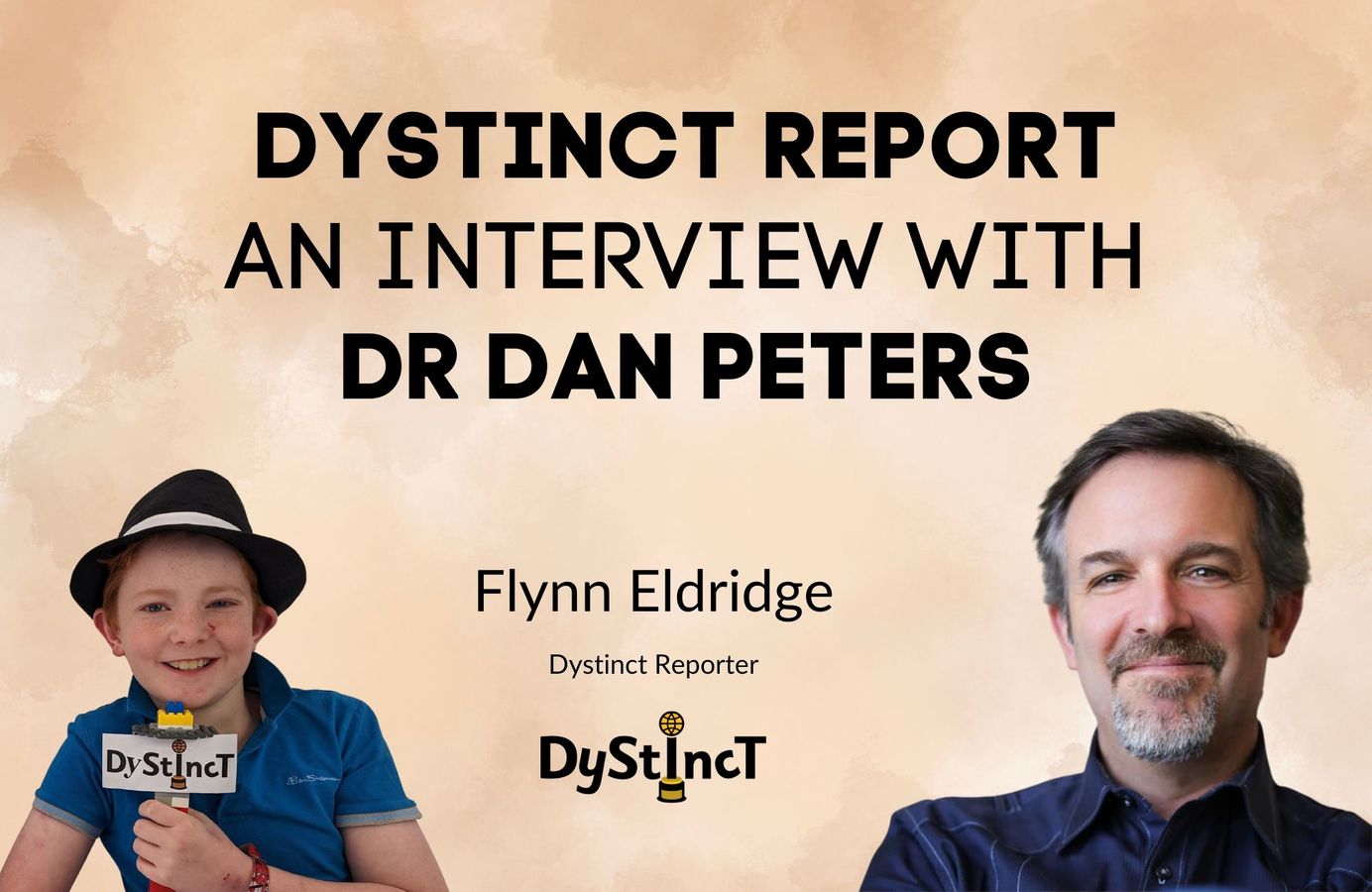
Issue 15: Dystinct Report – Flynn Eldridge’s Interview with Dr Dan Peters
Ten-year-old journalist Flynn Eldridge has a chat with Dr Dan Peters, a psychologist, author, and parenting expert, about his work and life.
For over 25 years, Dr Dan has been passionate about helping parents, children, and families realize and achieve their full potential while living with intention and purpose. Dr Dan is the Co-Founder/Executive Director of the Summit Center (summitcenter.us), specializing in the assessment and treatment of children, adolescents, and families with a special emphasis on gifted, talented, and creative individuals and families as well as anxiety, overcoming fear, learning differences, neurodiversity, and more.
The Interview
The Interview
Dystinct reporter Flynn Eldridge has a chat with Dr Dan about his work and life.
Excerpts from the Interview
Excerpts from the Interview
Who do you help in your job, and why?
I help children, adolescents, adults, parents and families. I am passionate about helping people realize their full potential and then live meaningful and fulfilling lives, knowing more about who they are, their strengths, their challenges, and how their own unique profile can be best accepted and utilized in their world.
What is twice exceptionality?
Twice exceptionality is when someone has advanced abilities on one end of an imaginary bell curve. On the one end, you might have advanced thinking abilities that we call cognitive abilities; You might be advanced in academics, math, science, English, or writing. You can also be advanced in creativity, leadership abilities or performing arts abilities like music, for example. And on the other end of the bell curve, you also have some challenges. And those challenges can show up, like dyslexia, dysgraphia, attentional issues like ADHD, Autism Spectrum Disorder, auditory processing or visual processing issues, anxiety, depression, or other mood challenges. And the reason we say you're twice exceptional is because you have exceptionalities on both ends of the bell curve. But in reality, we know most people are not that neat and tidy, and we all usually have more exceptionalities than that.
How would you describe someone who is twice exceptional?
I would describe them as someone who is very bright and creative and also has weaknesses or challenges in one of the many different domains of life functioning that I just mentioned. So really, we think about it as significant strengths and also some other developmental challenges, which can be frustrating and keep us from being able to show our best selves or our best work.
How do you measure challenges such as building creativity and adventure?
We know that most of the tests don't really capture that. Many of the cognitive tests do have visual portions. Many people who are really good at Lego and building can show strongly on the visual portions of the cognitive test. However, when it comes to building creativity and other skills that fall outside of a test, we really have to look towards what we call portfolios. That is where we actually look at people's work and creations and see the detail and the sophistication. Many of these people who are very bright, creative, twice exceptional, and gifted will be doing advanced building and creating and inventing at a very young age.
What type of questions would parents ask you?
Parents ask questions to understand their children better. They want to understand how to help their child be at their best and develop in an optimal way. They want to ask questions if their child has an observable or diagnosable challenge, which might be hidden due to their strengths. They might have concerns about their child's worries. Largely most questions fall under the umbrella of them really wanting to be the best parents they can be for their kids and wanting to understand their children to support them and their growth.
This post is for paying subscribers only
SubscribeAlready have an account? Log in


